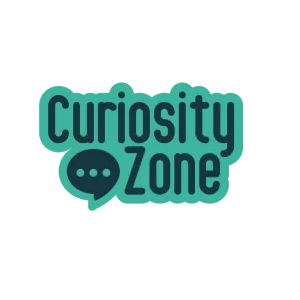
Literacy, Learning, and All That Jazz
By Steve Lear
I was recently in New Orleans for the annual Financial Literacy and Economic Education Conference, sponsored by the Council on Economic Education (CEE). It was energizing to be surrounded by teachers, innovators, and financial literacy advocates all working to help young people make better decisions about money and life.
The conference offered valuable insights for all stages of financial literacy education, whether you’re a parent or grandparent helping children, an educator assisting students, or a financial professional advising clients. Below are some key insights from this year’s sessions:
Effective Ways to Teach Early Financial Education:
- Teach Deferred Gratification. Help children understand that waiting can be a rewarding experience.
- Teach Counting. Build comfort and confidence with numbers from an early age.
- Teach Generosity. Encourage giving time, kindness, and money.
- Play “How Much Does It Cost?” A fun guessing game that builds awareness of real-world prices.
- Focus on Choices. One of the most important lessons for children is learning how to make thoughtful choices about earning and spending money.
- Bring Career Guests into the Classroom. Exposure to different paths helps students connect their learning to real-life experiences.
- Ask Better Questions. Instead of “What do you want to do for a living?” try “How do you want to live?”
- Minimize Shame. When talking about money, strive to encourage, not embarrass. Instead of dwelling on past mistakes, focus on developing skills and building confidence.
Teaching money skills isn’t just about math—it’s about mindset, values, and choices.
Recommended Teaching Strategies
- Become a Coach
Dr. Travis Towne, a National Board-certified teacher and chair of the Social Studies department at Lenoir County Early College High School in Kinston, North Carolina, was a conference speaker. An 18-year teaching veteran, Towne also serves as a regional board member and master teacher for the North Carolina Council on Economic Education (NCCEE) and a representative for Next Gen Personal FinanceDr. Towne urged educators to become coaches, reminding the audience that knowing does not equal doing. Teaching focuses on imparting knowledge, while coaching emphasizes practical application. - Adopt the Right Mindset
Educators were encouraged to explore growth mindset-based learning methods, such as those offered by Khan Academy. A growth mindset is the belief that you can increase your intelligence with effort. Additionally, a growth mindset enables individuals to value their efforts regardless of the outcome. In contrast, a fixed mindset is the belief that you are born with a certain set of abilities and cannot change them. In the fixed mindset, everything is about the outcome. If you fail – or if you’re not the best – then your efforts have been wasted. - Create Personal Agency
Real financial literacy happens when students feel empowered to take ownership of their choices. - Collaborate!
Financial industry professionals do not have to become education experts; they can collaborate with Financial Literacy Educators who can help them to:- Host workshops and training sessions.
- Guide younger clients toward greater financial confidence and understanding.
Recommended Tools and Tactics
- Support teachers by developing substitute lesson plans that allow them to step away for personal finance training while keeping students engaged.
- Focus on new teachers by helping them to build both skills and confidence in the critical first four years in the classroom.
- Seek creative approaches to teaching financial literacy. Nerd Wallet was recommended as a reliable source for classroom examples and activities.
- Utilize Google Classroom, the preferred learning management platform in most schools and colleges.
Next Steps: Let’s Make Minnesota a Leader in Financial Literacy
I’m motivated to continue identifying collaborative partners who can amplify financial literacy efforts in Minnesota! If you’re interested, please email me at steve@stevelear.org.

